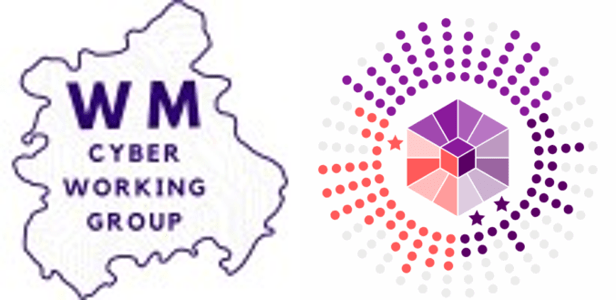The West Midlands Cyber Working Group (WM CWG) is a collaborative, region-wide forum uniting cyber leaders from business, academia, government, and civil society. It facilitates quarterly convenings, shared strategy development, and joint funding bids to strengthen the regional cyber ecosystem. Operating as an open, grassroots-led group, WM CWG is aligned with DSIT goals, WMCA priorities, and the UK Cyber Strategy. It seeks to drive investment, skills, and coordination through regional initiatives. Here’s an example “innovation Canvas” for the WM CWG.
This article is with thanks to Robin Kennedy and Emma Fadlon of Innovate UK, based on my time with the academic leaders on the 2025 CyberASAP cohort. Thank you!
Contents
OPPORTUNITY
1. Needs
The West Midlands lacks a joined-up platform to connect cyber stakeholders across business, academia, government, and the third sector. There is fragmentation in cyber support, skills development, and policy engagement.
2. Market
The region is home to 9,000+ tech businesses and key cyber assets (e.g. WMCRC, Midlands Cyber, regional universities). There’s growing interest from DSIT, IUK, and private sector investors in place-based cyber initiatives. Opportunity to be the national model for regional cyber cohesion.
3. Impact
- Economic: Drives investment into cyber SMEs, start-ups, and ecosystem builders.
- Policy: Creates a unified regional voice for DSIT, UK Cyber Security Council, and WMCA policy consultations.
- Social: Promotes diversity, skills development, and community resilience in cyber.
OFFER
4. Approach
Quarterly working group meetings, open Slack community, regional convening events (e.g. Cyber Festival), collaborative funding bids (e.g. Cyber Local), and stakeholder alignment across academia, industry, and policy.
5. Value Proposition
A neutral, grassroots-led cyber community forum that enables collaboration, drives cyber innovation, and makes the West Midlands a key voice in national cyber strategy. WM CWG acts as a trusted regional bridge.
6. Experience
Inclusive and accessible meetings, structured Slack workspace, Eventbrite-driven open events. Commitment to transparency, openness, and amplification of member activity rather than duplication.
CAPABILITY
7. R&D
Facilitates joint funding bids (e.g. with Aston University, IAWM), and promotes innovation initiatives (e.g. CyberASAP). Supports exploratory projects in cyber psychology, supply chain risk, and digital safety.
8. Operations
Lean volunteer-based core team, with in-kind support from Cyber Tzar, Midlands Cyber, Innovation Alliance WM, and WMCRC. Slack used for operations, collaboration, and coordination.
9. Finance
Core operations unfunded; resourcing sought through bids (e.g. Cyber Local). Cyber Festival and other events funded via small project budgets and delivery partner support.
10. Leadership
Led by Wayne Horkan (Chair), with support from a cross-sector Committee including DSIT, CREW/M, Midlands Cyber, academia, and regional delivery bodies. Leadership modelled on openness, collaboration, and transparency.
11. IP
Open IP model, outputs shared with attribution (e.g. ToR, blogs, stakeholder mapping). Not-for-profit ethos. Data/IP generated for collaborative projects is jointly owned with project partners.
12. Rules
Aligns with DSIT guidance, UK Cyber Security Strategy, and regional frameworks (e.g. WMCA, IAWM). Maintains accessible records (e.g. ToR, meeting minutes) and complies with GDPR and event safety standards.
NEXT ACTIONS
- Secure Cyber Local funding to deliver a two-day Cyber Festival, in progress
- Formalise partnerships with delivery bodies (e.g. IAWM, Midlands Cyber, WMCRC), underway
- Launch public Slack and improve onboarding for community members, live at wm-cwg.slack.com
- Expand Committee representation to include underrepresented voices, Q2 priority
- Publish 2025 roadmap & convening calendar, planned for April/May
